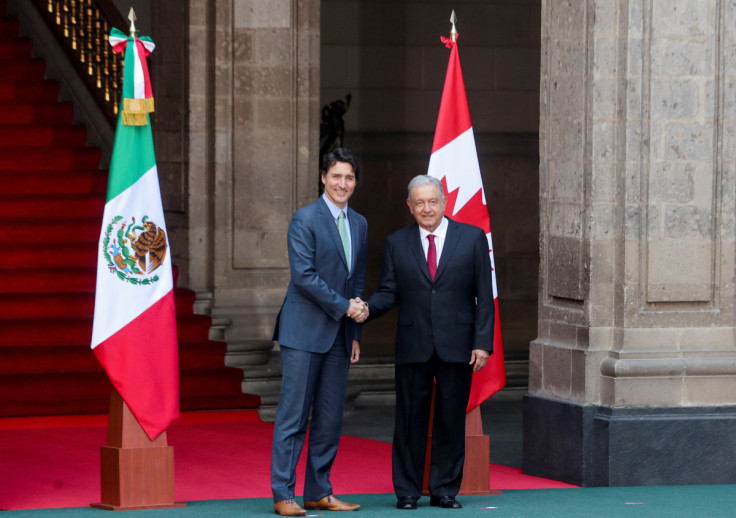The Pentagon’s Budget from Hell
Originally posted at TomDispatch.
Somehow, when it comes to Congress and the mainstream media, the true strangeness of the Pentagon budget always is missing in action. Despite arguments about the small things, just about everyone accepts that the United States must have a monstrous, all-powerful military and a military budget beyond compare (beyond, in fact, all comprehension). And nothing seems to truly dent that sensibility. Somehow, the fact that the Pentagon has been utterly incapable of winning – yes, actually winning! – a war that matters (or even half matters) since World War II never fully seems to penetrate, not even on the 20th anniversary of the disastrous invasion of Iraq, America’s own Ukraine. (Only former president George W. Bush, who launched that invasion, gets it, however subliminally.)
The lesson is all too clear: the more that’s spent on our military and the more potentially destructive it gets, the less it’s actually able to accomplish. Despite all but obliterating North Korea from the air, it couldn’t beat that country’s military (aided by China’s) in the early 1950s; it lost disastrously to distinctly under-armed rebels in Vietnam in the 1960s and early 1970s; and did so again more recently to the half-baked forces of the Taliban in Afghanistan. The response of Congress to such disasters in this century: rewarding the Pentagon with yet more barrels of money.
Think of it this way: in a world where billionaires are running rampant and grabbing ever more wealth, the Pentagon is going to outdo them all and, if nothing changes in the coming years, as TomDispatch regular William Hartung notes today, become the world’s first trillionaire. Imagine that! Something that might once have seemed inconceivable is now almost unstoppable, a future trillion-dollar military budget. And with that in mind, let Pentagon expert Hartung introduce you to that imposing trillionaire-in-the-making that has had just one great success in the twenty-first century: taking Congress captive. ~ Tom Engelhardt
Congress Has Been Captured by the Arms Industry
And We're Paying the Price (and What a Price It Is!)
William D. Hartung
On March 13th, the Pentagon rolled out its proposed budget for Fiscal Year 2024. The results were – or at least should have been – stunning, even by the standards of a department that’s used to getting what it wants when it wants it.
The new Pentagon budget would come in at $842 billion. That’s the highest level requested since World War II, except for the peak moment of the Afghan and Iraq wars, when the United States had nearly 200,000 troops deployed in those two countries.
$1 Trillion for the Pentagon?
It’s important to note that the $842 billion proposed price tag for the Pentagon next year will only be the beginning of what taxpayers will be asked to shell out in the name of “defense.” If you add in nuclear weapons work at the Department of Energy and small amounts of military spending spread across other agencies, you’re already at a total military budget of $886 billion. And if last year is any guide, Congress will add tens of billions of dollars extra to that sum, while yet more billions will go for emergency aid to Ukraine to help it fend off Russia’s brutal invasion. In short, we’re talking about possible total spending of well over $950 billion on war and preparations for more of it – within striking distance, in other words, of the $1 trillion mark that hawkish officials and pundits could only dream about a few short years ago.
The ultimate driver of that enormous spending spree is a seldom-commented-upon strategy of global military overreach, including 750 U.S. military bases scattered on every continent except Antarctica, 170,000 troops stationed overseas, and counterterror operations in at least 85 – no, that is not a typo – countries (a count offered by Brown University’s Costs of War Project). Worse yet, the Biden administration only seems to be preparing for more of the same. Its National Defense Strategy, released late last year, manages to find the potential for conflict virtually everywhere on the planet and calls for preparations to win a war with Russia and/or China, fight Iran and North Korea, and continue to wage a global war on terror, which, in recent times, has been redubbed “countering violent extremism.” Think of such a strategic view of the world as the exact opposite of the “diplomacy first” approach touted by President Joe Biden and his team during his early months in office. Worse yet, it’s more likely to serve as a recipe for conflict than a blueprint for peace and security.
In an ideal world, Congress would carefully scrutinize that Pentagon budget request and rein in the department’s overly ambitious, counterproductive plans. But the past two years suggest that, at least in the short term, exactly the opposite approach lies ahead. After all, lawmakers added $25 billion and $45 billion, respectively, to the Pentagon’s budget requests for 2022 and 2023, mostly for special-interest projects based in the states or districts of key members of Congress. And count on it, hawks on Capitol Hill will push for similar increases this year, too.
How the Arms Industry Captures Congress
The $45 billion by which Congress increased the Pentagon’s budget request last year was among the highest levels on record. Add-ons included five extra F-35 jet fighters and a $4.7 billion boost to the shipbuilding budget. Other congressional additions included 10 HH-60W helicopters, four EC-37 aircraft, and 16 additional C-130J aircraft (at a cost of $1.7 billion). There were also provisions that prevented the Pentagon from retiring a wide array of older aircraft and ships – including B-1 bombers, F-22 and F-15 combat aircraft, aerial refueling planes, C-130 and C-40 transport aircraft, E-3 electronic warfare planes, HH-60W helicopters, and the relatively new but disastrous Littoral Combat Ships (LCS), referred to by detractors as “little crappy ships.”
The lobbying effort to prevent the Navy from retiring those problem-plagued ships is a case study of all that’s wrong with the Pentagon budget process as it works its way through Congress. As the New York Times noted in a detailed analysis of the checkered history of the LCS, it was originally imagined as a multi-mission vessel capable of detecting submarines, destroying anti-ship mines, and doing battle with the kinds of small craft used by countries like Iran. Once produced, however, it proved inept at every one of those tasks, while experiencing repeated engine problems that made it hard even to deploy. Add to that the Navy’s view that the LCS would be useless in a potential naval clash with China and it was decided to retire nine of them, even though some had only served four to six years of a potential 25-year lifetime.
Contractors and public officials with a stake in the LCS, however, quickly mobilized to block the Navy from shelving the ships and ultimately saved five of the nine slated for retirement. Major players included a trade association representing companies that had received contracts worth $3 billion to repair and maintain those vessels at a shipyard in Jacksonville, Florida, as well as other sites in the U.S. and overseas.
The key congressional players in saving the ship were Representative John Rutherford (R-FL), whose district includes that Jacksonville shipyard, and Representative Rob Wittman (R-VA), whose district includes a major naval facility at Hampton Roads where maintenance and repair work on the LCS is also done. I’m sure you won’t be surprised to learn that, in 2022, Wittman received hundreds of thousands of dollars in arms-industry campaign contributions, including substantial donations from companies like Lockheed Martin, Raytheon, and General Dynamics with a role in the LCS program. When asked if the lobbying campaign for the LCS influenced his actions, he said bluntly enough, “I can’t tell you it was the predominant factor… but I can tell you it was a factor.”
Former Representative Jackie Speier (D-CA), who tried to make the decision to retire the ships stick, had a harsh view of the campaign to save them:
“If the LCS was a car sold in America today, they would be deemed lemons, and the automakers would be sued into oblivion… The only winners have been the contractors on which the Navy relies for sustaining these ships.”
Not all members of Congress are wedded to the idea of endlessly increasing Pentagon spending. On the progressive side, Representatives Barbara Lee (D-CA) and Mark Pocan (D-WI) have introduced a bill that would cut $100 billion a year from the department’s budget. That figure aligns with a 2021 Congressional Budget Office report outlining three paths toward Pentagon budget reductions that would leave the U.S. with a significantly more than adequate defense system.
Meanwhile, members of the right-wing Freedom Caucus and their allies have promised to push for a freeze on federal discretionary spending at Fiscal Year 2022 levels. If implemented across the board, that would mean a $75 to $100 billion cut in Pentagon spending. But proponents of the freeze have been unclear about the degree to which such cuts (if any) would affect the Department of Defense.
A number of Republican House members, including Speaker Kevin McCarthy, have indeed said that the Pentagon will be “on the table” in any discussion of future budget cuts, but the only specific items mentioned have involved curbing the Pentagon’s “woke agenda” – that is, defunding things like alternative fuel research – along with initiatives aimed at closing unnecessary military bases or reducing the size of the officer corps. Such moves could indeed save a few billion dollars, while leaving the vast bulk of the Pentagon’s budget intact. No matter where they stand on the political spectrum, proponents of trimming the military budget will have to face a congressional majority of Pentagon boosters and the arms industry’s daunting influence machine.
Greasing the Wheels: Lobbying, Campaign Contributions, and the Job Card
As with the LCS, major arms contractors have routinely greased the wheels of access and influence in Congress with campaign contributions to the tune of $83 million over the past two election cycles. Such donations go mainly to the members with the most power to help the major weapons producers. And the arms industry is fast on the draw. Typically, for instance, those corporations have already expanded their collaboration with the Republicans who, since the 2022 election, now head the House Armed Services Committee and the House Appropriations Committee’s defense subcommittee.
The latest figures from OpenSecrets, an organization that closely tracks campaign and lobbying expenditures, show that new House Armed Services Committee chief Mike Rogers (R-AL) received more than $511,000 from weapons makers in the most recent election cycle, while Ken Calvert (R-CA), the new head of the defense appropriations subcommittee, followed close behind at $445,000. Rogers has been one of the most aggressive members of Congress when it comes to pushing for higher Pentagon spending. He’s a longstanding booster of the Department of Defense and has more than ample incentives to advocate for its agenda, given not just his own beliefs but the presence of major defense contractors like Boeing and Lockheed Martin in his state.
Contractors and members of Congress with arms plants or military bases in their jurisdictions routinely use the jobs argument as a tool of last resort in pushing the funding of relevant facilities and weapons systems. It matters little that the actual economic impact of Pentagon spending has been greatly exaggerated and more efficient sources of job creation could, with the right funding, be developed.
At the national level, direct employment in the weapons sector has dropped dramatically in the past four decades, from 3.2 million Americans in the mid-1980s to one million today, according to figures compiled by the National Defense Industrial Association, the arms industry’s largest trade group. And those one million jobs in the defense sector represent just six-tenths of one percent of the U.S. civilian labor force of more than 160 million people. In short, weapons spending is a distinct niche sector in the larger economy rather than an essential driver of overall economic activity.
Arms-related employment will certainly rise as Pentagon budgets do and as ongoing expenditures aimed at arming Ukraine continue to do so as well. Still, total employment in the defense sector will remain at modest levels relative to those during the Cold War, even though the current military budget is far higher than spending in the peak years of that era.
Reductions in defense-related employment are masked by the tendency of major contractors like Lockheed Martin to exaggerate the number of jobs associated with their most significant weapons-making programs. For example, Lockheed Martin claims that the F-35 program creates 298,000 jobs in 48 states, though the real figure is closer to half that number (based on average annual expenditures on the program and estimates by the Costs of War Project that military spending creates about 11,200 jobs per billion dollars spent).
It’s true, however, that the jobs that do exist generate considerable political clout because they tend to be in the states and districts of the members of Congress with the most sway over spending on weapons research, development, and production. Addressing that problem would require a new investment strategy aimed at easing the transition of defense-dependent communities and workers to other jobs (as outlined in Miriam Pemberton’s new book Six Stops on the National Security Tour: Rethinking Warfare Economies).
Unfortunately, the major contractors are ever better positioned to shape future debates on Pentagon spending and strategy. For example, a newly formed congressional commission charged with evaluating the Pentagon’s National Defense Strategy mostly consists of experts and ex-government officials with close ties to those weapons makers. They are either executives, consultants, board members, or staffers at think tanks with substantial industry funding.
And sadly, this should shock no one. The last time Congress created a commission on strategy, its membership was also heavily slanted towards individuals with defense-industry ties and it recommended a 3% to 5% annual increase in Pentagon spending, adjusted for inflation, for years to come. That was well more than what the department was then projected to spend. The figure that the commission recommended immediately became a rallying cry for Pentagon boosters like Mike Rogers and former ranking member of the Senate Armed Services Committee James Inhofe (R-OK) in their efforts to push spending even higher. Inhofe typically treated that document as gospel, at one point waving a copy of it at a congressional hearing on the Pentagon budget.
“An Alert and Knowledgeable Citizenry”
The power and influence of the arms industry are daunting obstacles to a change in national priorities. But there is historical precedent for a different approach. After all, given enough public pressure, Pentagon spending did drop in the wake of the Vietnam War, again at the end of the Cold War, and even during the deficit reduction debates of the early 2010s. It could happen again.
As President Dwight D. Eisenhower noted in his famous farewell address in 1961, the only counterbalance to the power of the military-industrial complex is an “alert and knowledgeable citizenry.” Fortunately, a number of individuals and groups are working hard to sound the alarm and mobilize opposition to massive overspending on war and preparations for more of it. Coalitions like People Over Pentagon and organizations like the Poor People’s Campaign continue to educate the public and work to increase the number of congressional representatives in favor of reining in the Pentagon’s bloated budget and shifting funds to areas of urgent national need.
As of now, the Pentagon consumes more than half of the federal government’s discretionary budget. That, in turn, means the funds needed to prevent pandemics, address climate change, and reduce poverty and inequality have taken a back seat. Those problems aren’t going away and are likely to pose greater threats to American lives and livelihoods than traditional military challenges. As that reality becomes clearer to ever more Americans, the Pentagon’s days of virtually unlimited funding may indeed come to an end. It’s not the work of a day or a year, but it certainly is essential to the safety and security of this country and the world.
William D. Hartung, a TomDispatch regular, is a senior research fellow at the Quincy Institute for Responsible Statecraft and the author of Prophets of War: Lockheed Martin and the Making of the Military-Industrial Complex.
Follow TomDispatch on Twitter and join us on Facebook. Check out the newest Dispatch Books, John Feffer’s new dystopian novel, Songlands (the final one in his Splinterlands series), Beverly Gologorsky’s novel Every Body Has a Story, and Tom Engelhardt’s A Nation Unmade by War, as well as Alfred McCoy’s In the Shadows of the American Century: The Rise and Decline of U.S. Global Power, John Dower’s The Violent American Century: War and Terror Since World War II, and Ann Jones’s They Were Soldiers: How the Wounded Return from America’s Wars: The Untold Story.
Copyright 2023 William D. Hartung








